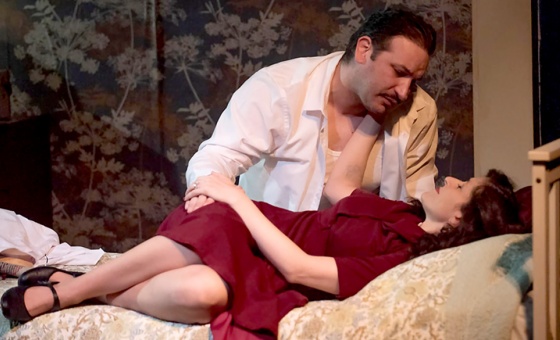This is the last article you can read this month
You can read more article this month
You can read more articles this month
Sorry your limit is up for this month
Reset on:
Please help support the Morning Star by subscribing here
THE police raid on a Quaker place of worship last week was not about preventing crime or arresting criminals. It was an attempt to intimidate peaceful protesters. It will not succeed.
At about 7.15pm on Thursday March 27, at least 20 police officers broke down the door of Westminster Quaker Meeting House in St Martin’s Lane in London. They could have just rung the doorbell.
The police, some armed with tasers, charged into a room where the non-violent protest group Youth Demand were holding a welcome talk. Women in their late teens and early twenties were grabbed and handcuffed behind their backs.
They swarmed through the rest of the building, entering every room, including one that had been hired by a life drawing class and even a room where a private counselling session was taking place.
This horrific incident was made possible by the draconian anti-protest laws introduced by the previous Tory government and maintained by their Labour successors. The police reportedly used the Police, Crime, Sentencing and Courts Act as they arrested six women. The youngest was 18.
When the Act was passed in 2022, we were told that the police would use it only in extreme situations. That promise is now as broken as Westminster Meeting House’s door.
In their media statement, the Metropolitan Police said that Youth Demand are planning civil disobedience in London. In recent years there has been a noticeable increase in campaigners being arrested for things they are only talking about doing. Even so, this went further.
This Youth Demand gathering was a welcome talk. It was a public event, open to people who had never even considered engaging in civil disobedience before. The police arrested other Youth Demand members in London and Exeter on the same day.
The police’s thuggery seems designed to intimidate Youth Demand from going ahead with their plans for April. The police may hope that the publicity around the raid will deter others from joining in.
Typically, the police have seriously underestimated the determination of people whose rights are denied.
Tessa, a member of Youth Demand, said after her release on Friday that “this blatant act of intimidation” would not stop them going ahead with actions in April to resist the British government’s military support for genocide in Gaza.
This incident should serve as a wake-up call to anyone still in denial about the suppression of peaceful protest in Britain. Anyone who thought that the police would think twice before smashing their way into a place of worship has been disillusioned.
Of course, the raid would have been immoral and outrageous whatever building it had taken place in. And I am certainly not suggesting that activities in religious buildings should be immune from scrutiny. However, the police’s disregard for the nature of the venue shows that their contempt for religious liberty is on a level with their hostility to free speech and freedom of assembly.
Hours after the raid had taken place, Quakers nationally issued a statement condemning “an aggressive violation of our place of worship.”
Quakers – also known as the Religious Society of Friends – refuse to separate the “sacred” from the “secular,” so they do not believe their buildings to be more sacred than other places. But like many other religious groups, Quakers want their buildings to be places of safety and welcome. Those who visit them should be able to expect this.
This is why apologists for the police are missing the point when they emphasise that the arrested individuals were not Quakers. This is irrelevant. Quakers — who will rent rooms only to peaceful groups — may no longer be able to assure people using their buildings that they are in a safe space. Westminster Meeting House is also the home of two Quaker wardens, whose home has been violated.
Speaking personally, Westminster Quaker Meeting House was a place of welcome and community to me after I moved to London 20 years ago. I have since moved away from London, and to some extent away from Quakerism, but Westminster Quaker Meeting House holds a special place in my heart. As Quaker friends and acquaintances of mine condemned the raid on social media, I realised how many of them I had met for the first time in that building.
Paul Parker, the Recording Clerk of Quakers in Britain, said on Friday that nobody had been arrested in a Quaker Meeting House in Britain “in living memory.” It may be that such a thing has not happened since World War I, when there were cases of peace activists being arrested in Quaker venues.
In the 17th century, however, arrests at Quaker meetings were very common. In 1661, Charles II suppressed meetings of groups including Quakers and Baptists who were seen as hostile to royalist government.
The Quaker Act of 1662 banned more than five adults from meeting for worship. Yet however many were imprisoned, the meetings still happened. In Reading, Quaker children held Meetings for Worship after the adults were arrested. When Horsleydown Quaker Meeting House was demolished by the authorities, Quakers met for worship the next day amid the ruins.
I am not suggesting that the situation is as bad as then. But while the people arrested were not Quakers, the authorities have again violated a place of worship to intimidate peaceful people from acting on their conscience.
On Sunday, there was an unusually high turnout at Westminster Quaker Meeting when people turned up to show solidarity and to keep the Meeting House running. On Thursday, Quakers are planning to hold a Meeting for Worship outside Scotland Yard.
People of all faiths and none need to show their solidarity with Youth Demand and with the Quakers. This time the police raided a Quaker Meeting House. Next time it could be a church, temple, synagogue or mosque.











